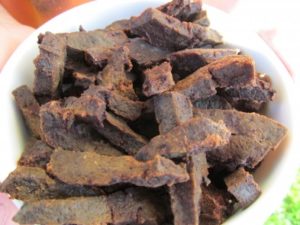Is Milk Bad For Your Health?
Traditional cow’s milk has been a daily staple for millions of people around the world. Even though this is a popular beverage, have you ever considered adverse effects it may have on your body? There have been numerous studies that go in favor of milk, but also the ones that prove its harmful nature.
For that reason, many resort to other products, such as soy or almond milk, cheese, and explore the health benefits of yogurt. So, what’s the truth. In this article, we will try to explain the pros and cons of milk and let you decide on your own.
Nutritive value of milk
This ingredient offers 18 out of 22 essential nutrients; therefore, it’s considered a whole food. In milk, you will find magnesium, calcium, folate, phosphorus, vitamin A, potassium, Vitamin B12, protein, and zinc.

Additionally, it also provides selenium, vitamin B6, iron, vitamin K, vitamin E, niacin, riboflavin, and thiamin. Keep in mind that fat content may vary and that whole milk features more fat than others.
Benefits
Controls appetite – scientists haven’t been able to prove that consumption of milk leads to obesity or weight gain. However, they managed to discover that this ingredient may curb your appetite. When drinking milk, you will feel more sated and fuller. Some studies have shown what full-fat dairy intake is linked to lower body weight.
Develops bones – based on a 2016 study, milk can actually improve bone density and weight in children while minimizing the risk of childhood fractures. One research indicates that pregnant women who ate plenty of dairy products and calcium-rich food delivered children with a better bone structure.
Better dental and bone health – did you know that one cup of milk has nearly 30% of the daily requirement of calcium for adults. This ingredient also features magnesium and potassium, minerals crucial for healthy teeth and bones. Dairy products offer almost 50% of the calcium in a traditional American diet. These days, milk is often enriched with vitamin D, which enables the absorption of calcium.
Cons
Acne – one study in 2016 discovered that teenagers who drank a lot of skim or low-fat milk suffered from acne. This might be because milk affects certain hormones in our body, such as insulin-like growth factor – 1 and insulin. However, more research is required to confirm this claim.
Now, when it comes to other skin conditions, milk may worsen eczema. But women who were breastfeeding and included probiotics in their diet lowered their kid’s risk of eczema.
Allergies

Nearly 5% of children have a milk allergy, which causes diarrhea, constipation, and colic. Other severe symptoms, such as difficult breathing, wheezing, anaphylaxis, and bloody stool, may appear. While children may outgrow milk allergy, adults can develop it.
Cancer
We have often heard that milk is connected to certain types of cancer. Excess calcium from dairy products might increase the risk of prostate cancer. Additionally, milk sugars have been linked to ovarian cancer, but more research is needed to estimate the final results.














 Although smoking is a light, quick and cheaper method than eating it, this does not mean that you can experiment with food. The joint is, in any case, quicker and easier than preparing a dish. Of course, the amount needed for the joint is far smaller than when we add it to food. However, the marijuana in the food has some of its advantages.
Although smoking is a light, quick and cheaper method than eating it, this does not mean that you can experiment with food. The joint is, in any case, quicker and easier than preparing a dish. Of course, the amount needed for the joint is far smaller than when we add it to food. However, the marijuana in the food has some of its advantages.
 The liver is a nutrient-rich organ that most dogs love eating. This organ will provide your pet with proteins, fat and vitamin A. These features will help your dog stay healthy. The liver is also a good source of iron, copper, niacin, zinc, and phosphorus. It will provide your four-legged friend with vitamin B, omega-3, and omega-6 fatty acids. This is an essential amino acid your dog requires to keep a balanced diet. Apart from being very tasty, the liver will provide them a lot of benefits and keep them in shape.
The liver is a nutrient-rich organ that most dogs love eating. This organ will provide your pet with proteins, fat and vitamin A. These features will help your dog stay healthy. The liver is also a good source of iron, copper, niacin, zinc, and phosphorus. It will provide your four-legged friend with vitamin B, omega-3, and omega-6 fatty acids. This is an essential amino acid your dog requires to keep a balanced diet. Apart from being very tasty, the liver will provide them a lot of benefits and keep them in shape.
 In some cases, the cooked liver is an even better meal for your dog than the baked one. But, you shouldn’t serve him this stew every day. Many people aren’t huge fans of the smell, but it’s a delicious meal for your pet. Once you discover the health benefits of beef liver for dogs, you will put up with the smell. We found a fantastic recipe on
In some cases, the cooked liver is an even better meal for your dog than the baked one. But, you shouldn’t serve him this stew every day. Many people aren’t huge fans of the smell, but it’s a delicious meal for your pet. Once you discover the health benefits of beef liver for dogs, you will put up with the smell. We found a fantastic recipe on 
 If you want to promote your business online, then you need to have a good website. The site should be your online signature, but it needs to be done professionally. For this, many people hire professionals, who can help them create a successful website. Here you can offer your services, the choice of meals, as well as the prices. The customers should be able to reserve the table via the site, and the key thing is to get them before your competitors find them. Make your website look spectacular, with a lot of pictures, don’t make it too complicated. Otherwise, your site will be too complicated to use.
If you want to promote your business online, then you need to have a good website. The site should be your online signature, but it needs to be done professionally. For this, many people hire professionals, who can help them create a successful website. Here you can offer your services, the choice of meals, as well as the prices. The customers should be able to reserve the table via the site, and the key thing is to get them before your competitors find them. Make your website look spectacular, with a lot of pictures, don’t make it too complicated. Otherwise, your site will be too complicated to use.

 They have happy hours during the whole week and a really good menu for breakfast, lunch, and dinner. If you decide to go with them, you will not go wrong. Now, there are many restaurants in Miami as this is a place where people just love to keep their guests comfortable.
They have happy hours during the whole week and a really good menu for breakfast, lunch, and dinner. If you decide to go with them, you will not go wrong. Now, there are many restaurants in Miami as this is a place where people just love to keep their guests comfortable.